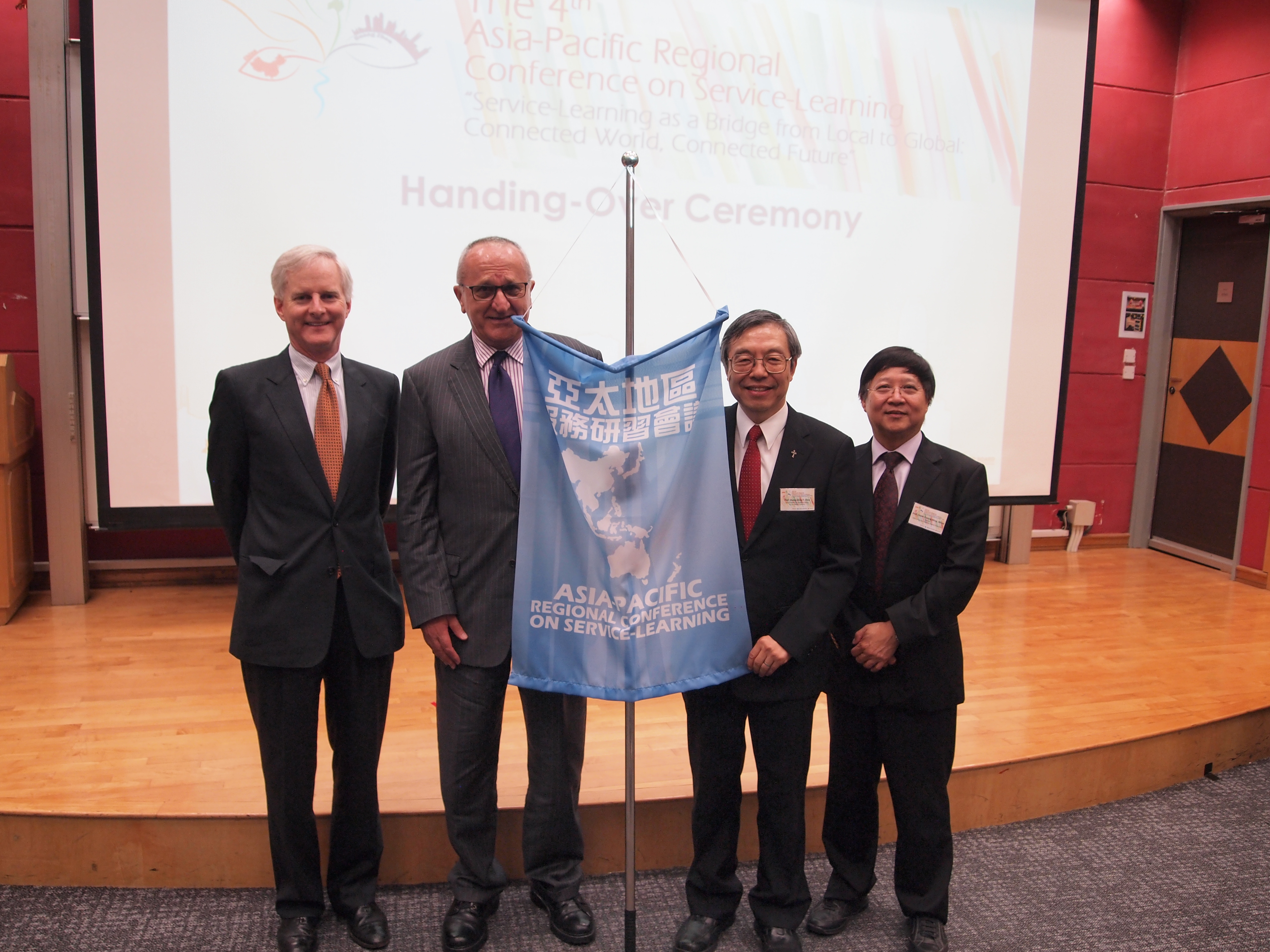Location
MD203, Paul Cardinal Shen Medical Building, Fu Jen University
Start Date
28-5-2015 4:30 PM
End Date
28-5-2015 5:40 PM
Description
Pilgrim Christian College is in an urban area where many communities can be easily reached by different humanitarian organizations. Thus, from the planning process, it included orientation of students about service-learning while still in the classroom and identification of the community in need. As a rural community, Sitio Midkiwan was chosen. It has a day care center which was not well attended to. Parents do not have regular jobs and income. However, plants are pristine. Assistance and encouragement on certain technology are needed to build up the environment as well as the health of the children. Being in the education domain, action started through the literacy program. The first concern was for conducive learning environment of the kids. Teaching to read and catching biblical virtues are deemed as most influential factors in the learning process. The daycare center teacher was not an education graduate, thus, the center was mutually restructured. The services of the parents were also tapped in carpentry works. After restructuring, students started every Saturday on reading using donated book. Literacy with the kids continued even during summer through vacation bible school. Services were not limited to the kids. Even if the area has a handful of farmers, many backyards were not productive. Thus, the parents were influenced to learn how to produce food at their backyard; this was called the FAITH Basket which stands for Food Always In The Home. The objective was for parents to feed their kids with nutritious foods coming from their backyard. As to reflection, the student teachers' experiences were greatly fulfilling for them. The celebration was through a public presentation which gave due recognition to all parents and students involved. Indeed, as the community learned to appreciate the improvements made through the students' efforts, the students themselves felt a deeper sense of fulfillment such that everyone displayed the joyful countenance.
Up to the present, students get to catch the vision of former student teachers, that is, showing love to the needy. Thus, the program continues. All these are guided by still-to-be-strengthened policies and assessment tools.
Recommended Citation
Tantoy, L. A., & Calumpang, P. M. (2015, May). Educational & agricultural literacy program in the rural community through service-learning. Paper presented at the 5th Asia-Pacific Regional Conference on Service-Learning: Love Journey: Community Engagement through Service-Learning, Fu Jen Catholic University, Taiwan.
Included in
Educational & agricultural literacy program in the rural community through service-learning
MD203, Paul Cardinal Shen Medical Building, Fu Jen University
Pilgrim Christian College is in an urban area where many communities can be easily reached by different humanitarian organizations. Thus, from the planning process, it included orientation of students about service-learning while still in the classroom and identification of the community in need. As a rural community, Sitio Midkiwan was chosen. It has a day care center which was not well attended to. Parents do not have regular jobs and income. However, plants are pristine. Assistance and encouragement on certain technology are needed to build up the environment as well as the health of the children. Being in the education domain, action started through the literacy program. The first concern was for conducive learning environment of the kids. Teaching to read and catching biblical virtues are deemed as most influential factors in the learning process. The daycare center teacher was not an education graduate, thus, the center was mutually restructured. The services of the parents were also tapped in carpentry works. After restructuring, students started every Saturday on reading using donated book. Literacy with the kids continued even during summer through vacation bible school. Services were not limited to the kids. Even if the area has a handful of farmers, many backyards were not productive. Thus, the parents were influenced to learn how to produce food at their backyard; this was called the FAITH Basket which stands for Food Always In The Home. The objective was for parents to feed their kids with nutritious foods coming from their backyard. As to reflection, the student teachers' experiences were greatly fulfilling for them. The celebration was through a public presentation which gave due recognition to all parents and students involved. Indeed, as the community learned to appreciate the improvements made through the students' efforts, the students themselves felt a deeper sense of fulfillment such that everyone displayed the joyful countenance.
Up to the present, students get to catch the vision of former student teachers, that is, showing love to the needy. Thus, the program continues. All these are guided by still-to-be-strengthened policies and assessment tools.
